International Relations: November 2024 UPSC Current Affairs | UPSC Mains: International Relations PDF Download
| Table of contents |

|
| World Bank Enhances Lending Capacity |

|
| India-Algeria Strengthen Defence Ties |

|
| SAGAR Vision |

|
| Reassessing India’s Stance on RCEP |

|
World Bank Enhances Lending Capacity
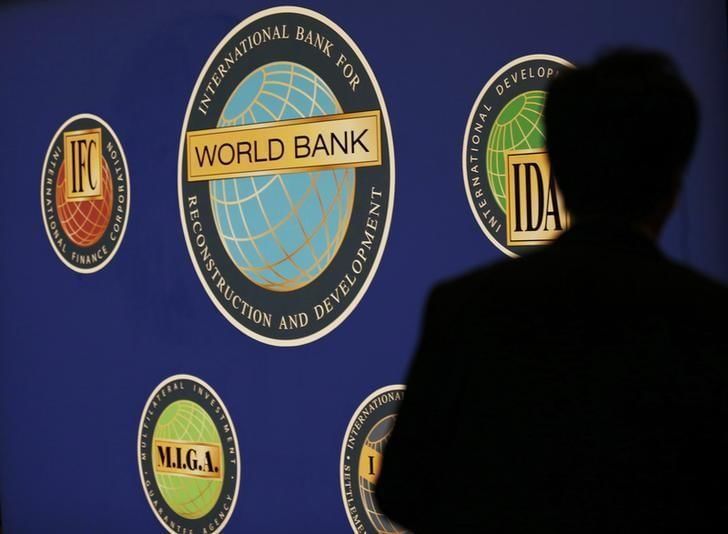
Why in News?
Recently, the World Bank has increased its lending capacity by 50% through optimization of its balance sheet, aiming to provide USD 150 billion over the next decade. This expansion emphasizes support for green projects, aligning with climate action and the Sustainable Development Goals (SDGs).
Key Takeaways
- The World Bank's current annual lending to India is USD 5 billion.
- India is one of the World Bank’s largest clients and will receive a significant portion of the increased funding.
- Focus areas for funding include climate resilience, rural development, energy, healthcare, and digital education.
Additional Details
- About the World Bank: The World Bank is a global development cooperative with 189 member countries, governed by a Board of Governors, typically consisting of finance or development ministers.
- Mission and Functions: The World Bank aims to reduce poverty and promote shared prosperity by providing financial products, technical assistance, and policy advice to tackle complex development challenges.
- It collaborates with multilateral institutions, civil society, the private sector, and foundations to maximize impact.
- The Bank has funded over 15,000 projects in areas such as education, health, infrastructure, and environmental sustainability.
- Some notable projects funded by the World Bank in India include:
- India Energy Efficiency Scale-up Program
- SANKALP
- Raising and Accelerating MSME Performance (RAMP)
- Eastern Dedicated Freight Corridor
- Mumbai Urban Transport Projects
Key Institutions within the World Bank Group
- International Bank for Reconstruction and Development (IBRD): Offers loans, guarantees, and policy advice to middle-income and creditworthy low-income countries, focusing on poverty reduction and sustainable growth.
- International Development Association (IDA): Provides concessional loans and grants to the poorest countries, supporting projects in rural development, education, health, and post-conflict recovery.
- International Finance Corporation (IFC): Promotes private sector investment in developing countries by providing financing, advisory services, and risk mitigation.
- Multilateral Investment Guarantee Agency (MIGA): Offers political risk insurance and guarantees to encourage foreign investment in developing economies, addressing risks from political instability.
- International Centre for Settlement of Investment Disputes (ICSID): Facilitates the resolution of investment disputes between investors and states, providing a legal framework for peaceful conflict resolution.
India-Algeria Strengthen Defence Ties
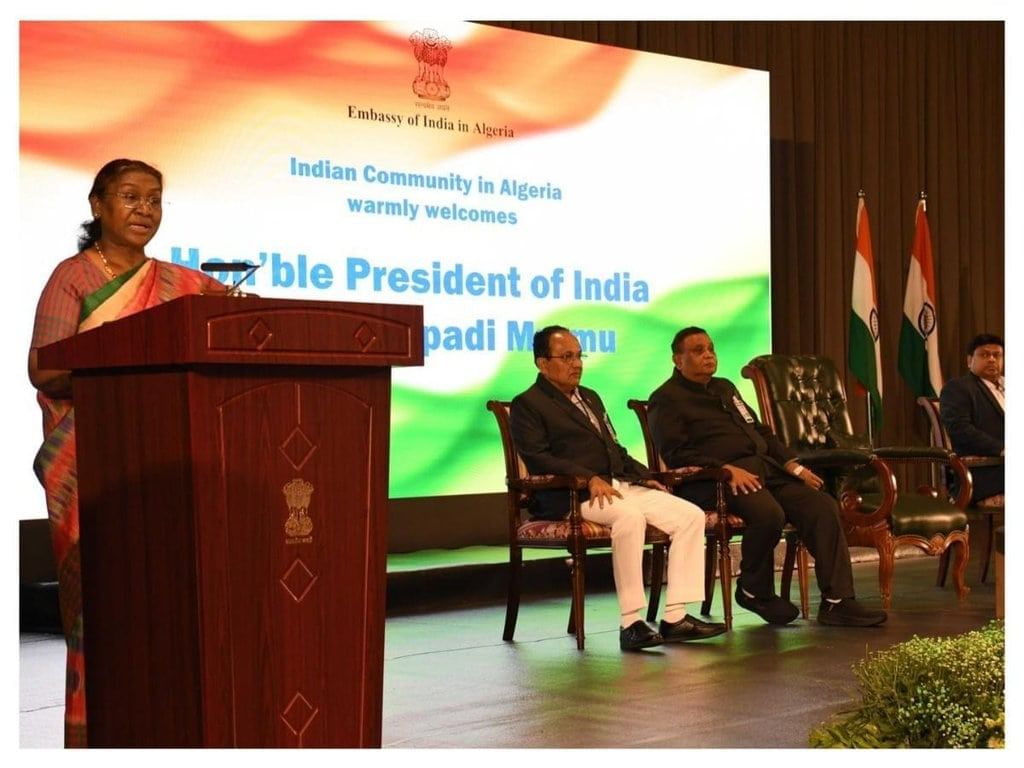
Why in News?
Recently, the Chief of Defence Staff of India visited Algeria, resulting in the signing of a significant Memorandum of Understanding (MoU) focused on defence cooperation. This agreement aims to enhance the strategic interests and military relations between India and Algeria.
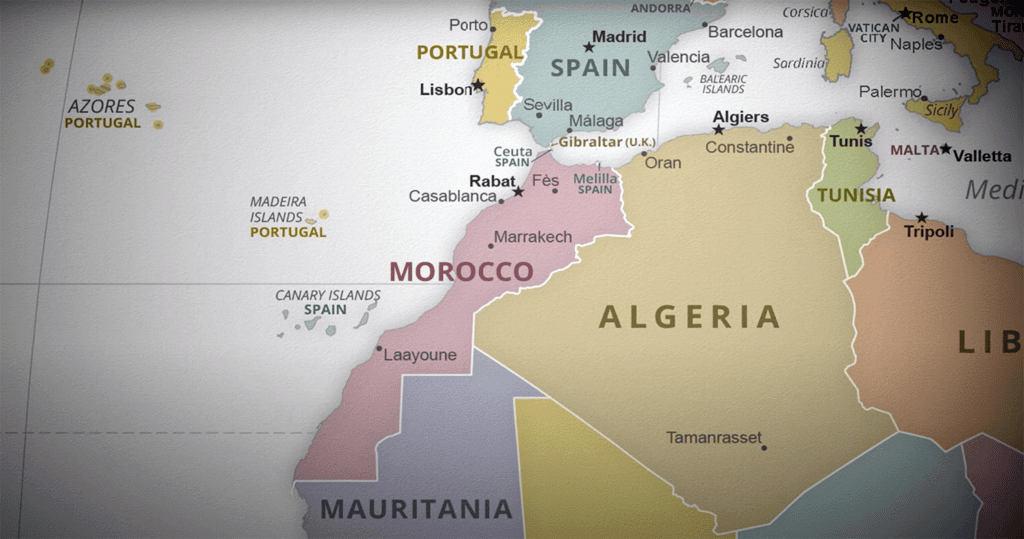
Key Takeaways
- The visit coincided with Algeria's 70th anniversary of its revolution, celebrated with military parades.
- India re-established its defence wing in Algeria and promotes a reciprocal establishment in India.
- The MoU will enhance mutual understanding and lay the groundwork for long-term collaboration across various sectors.
Additional Details
- Strategic Cooperation: The Chief of Defence Staff emphasized India's role as a "Vishwa Bandhu," or global partner, expressing India's willingness to share defence experiences and expertise.
- The discussions highlighted India's advancements in defence manufacturing under the 'Make in India' initiative, providing Algeria with potential collaboration opportunities.
- Diplomatic Relations: India and Algeria established diplomatic ties in July 1962, the same year Algeria gained independence from French colonial rule. India supported Algeria's liberation movement, and both countries are members of the Non-Aligned Movement.
- Bilateral Trade: Trade peaked at USD 2.9 billion in 2018 but fell to USD 1.5 billion in 2021. Trade rebounded to USD 2.1 billion in 2022, with major exports and imports outlined.
- Cultural Engagement: The International Day of Yoga was celebrated in Algeria, attracting over 300 participants.
- Indian Community: Approximately 3,800 Indians reside in Algeria, engaged in various sectors.
- The recent MoU on defence cooperation represents a significant step in fortifying the strategic partnership between India and Algeria, allowing both nations to engage collaboratively on international issues and enhance regional security.
SAGAR Vision
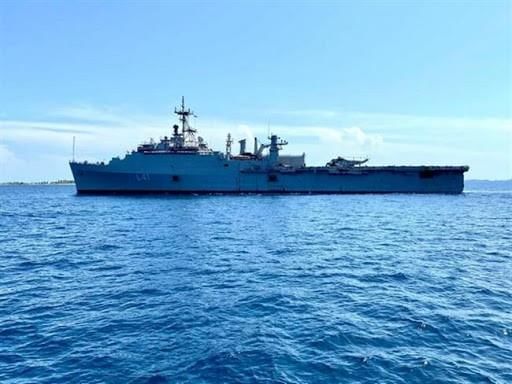
Why in News?
The SAGAR (Security and Growth for All in the Region) Vision is a strategic initiative aimed at enhancing maritime cooperation and fostering security in the Indian Ocean Region (IOR). This initiative underscores India's commitment to safeguarding its maritime interests while promoting sustainable growth and development among its neighbors.
Key Takeaways
- The SAGAR Vision emphasizes India's role as a net security provider in the Indian Ocean.
- It focuses on collaborative efforts with maritime partners to address common challenges such as piracy, terrorism, and natural disasters.
- The initiative encourages economic growth through enhanced trade and connectivity in the region.
Additional Details
- Maritime Security: This involves protecting sea lanes and ensuring the safety of shipping routes, which are vital for trade. For example, the South China Sea is a critical area where maritime security is pivotal.
- Regional Cooperation: The SAGAR initiative seeks to strengthen ties with neighboring countries through joint exercises and information sharing, fostering a sense of community and mutual support.
- India aims to provide humanitarian assistance and disaster relief (HADR) to countries in the region, demonstrating its commitment to regional stability.
Reassessing India’s Stance on RCEP
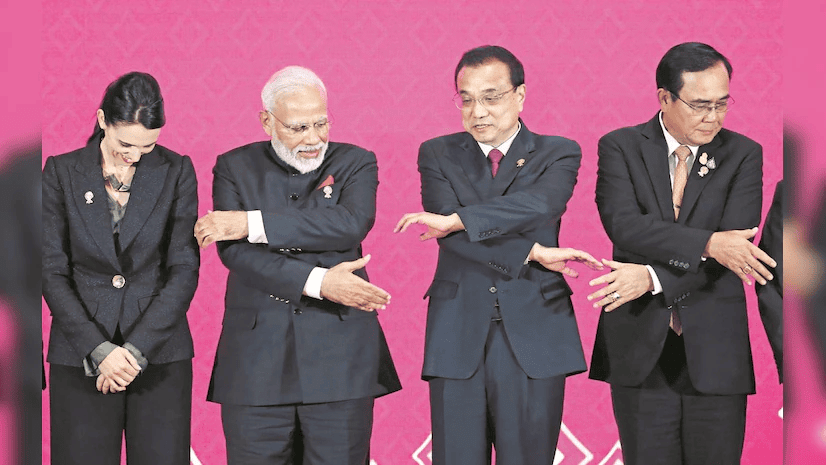
Why in News?
Niti Aayog CEO stated that India should join the Regional Comprehensive Economic Partnership (RCEP) and Comprehensive and Progressive Agreement for Trans-Pacific Partnership (CPTPP) trade blocs.
Regional Comprehensive Economic Partnership (RCEP)
- The RCEP bloc comprises;
- 10 ASEAN group members: Brunei, Cambodia, Indonesia, Malaysia, Myanmar, Singapore, Thailand, the Philippines, Laos and Vietnam and
- Five FTA partners: China, Japan, South Korea, Australia and New Zealand.
- These RCEP countries account for about 30% of the global GDP and 30% of the world population.
- India pulled out of the RCEP in 2019 after entering negotiations in 2013, in view that reduced customs duty would result in a flood of imports from China and trade deficit with other RCEP nations.
- The landmark agreement was signed in November 2020.
Comprehensive and Progressive Agreement for Trans-Pacific Partnership (CPTPP)
- CPTPP is a free trade bloc spanning five continents, made up of Pacific rim countries of Canada, Mexico, Peru, Chile, New Zealand, Australia, Brunei, Singapore, Malaysia, Vietnam, the UK and Japan.
- The pact requires countries to eliminate or significantly reduce tariffs and make strong commitments to opening services and investment markets.
- It also has rules addressing competition, intellectual property rights and protections for foreign companies.
Need for Joining the trade blocs
- Capturing the ‘China Plus One’ Opportunity: As global businesses look to diversify beyond China, countries like Vietnam, Indonesia, Malaysia, Turkey, and Mexico have already capitalized on this trend.
- India has the potential to emerge as an attractive alternative destination.
- Boosting the MSME Sector: Micro, Small, and Medium Enterprises (MSMEs) contribute approximately 40% of India’s exports.
- Integrating into larger trade blocs like RCEP and CPTPP could enhance their market reach and growth prospects.
- Economic Growth: The World Bank’s India Development Update emphasized that joining RCEP could boost trade, investment, and GDP growth.
- Trade Expansion: India’s economy, projected to be the third largest by 2027, would benefit from greater integration into global markets, leading to long-term sustainable development.
Challenges of joining these blocs
- Trade Deficit Concerns: India’s existing trade deficit with China is a major deterrent. In FY2023, bilateral trade with China stood at $118 billion, with a deficit of $85 billion.
- Impact on Domestic Sectors: MSMEs and some agriculture sectors will face increased competition from international imports, potentially affecting their viability.
- ASEAN’s trade deficit with China has jumped from $ 135.6 billion in 2023 from $ 81.7 billion in 2020.
Way Ahead
- India should adopt a phased approach to tariff reduction and align its trade policies to be more globally competitive. Ensuring support for vulnerable sectors like MSMEs through subsidies, training, and infrastructure upgrades is needed.
- Strengthening the manufacturing ecosystem and enhancing quality standards can help Indian products compete effectively on the global stage.
- Balanced Trade Negotiations: While joining RCEP and CPTPP, India must negotiate terms that safeguard its economic interests.
- This includes securing provisions that prevent dumping and protect strategic industries.
|
88 videos|124 docs
|
FAQs on International Relations: November 2024 UPSC Current Affairs - UPSC Mains: International Relations
| 1. What recent steps has the World Bank taken to enhance its lending capacity? |  |
| 2. How are India and Algeria strengthening their defense ties? |  |
| 3. What is the SAGAR vision, and why is it important for India? |  |
| 4. What factors are influencing India's reassessment of its stance on RCEP? |  |
| 5. How can the developments in international relations impact India's role in global affairs? |  |




















